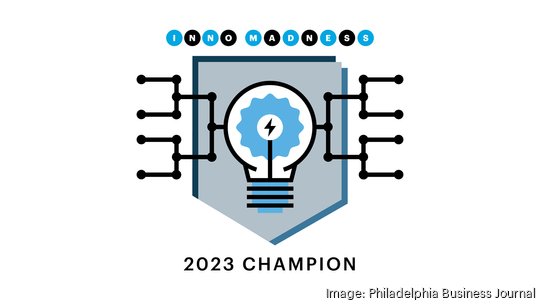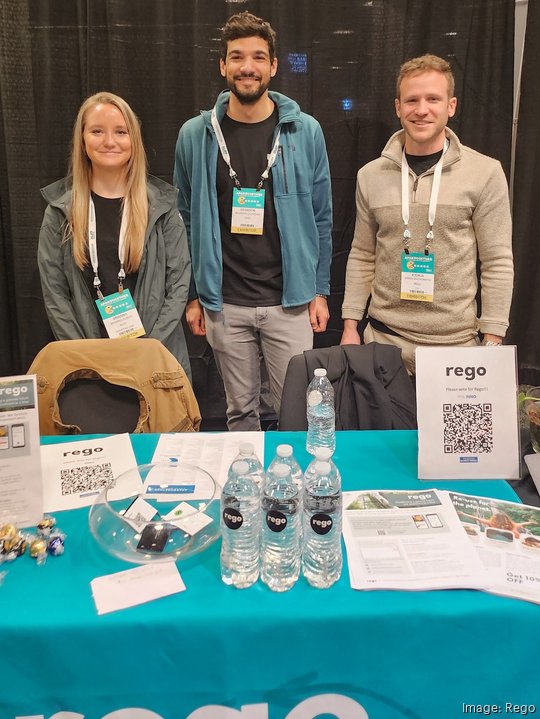
Inno Madness has a new champion. After four weeks of competition, underdog startup Rego has claimed the title, beating out fellow environmentally focused firm Carbon Reform in the finals.
The voting was close early before Philadelphia-based Rego pulled away, claiming over 61% of the vote in the championship showdown. On its path to victory, Rego, the No. 13 seed in this year's bracket, claimed upset wins over No. 4 WatchBox and No. 12 Navengage before going head to head with No. 14 Carbon Reform in the final.
The 2023 Inno Madness competition – which ran from March 8 to April 3 – was quite a contrast to the inaugural bracket challenge last year, when the No. 1 seed Center for Breakthrough Medicines bulldozed the field to claim the crown. This year’s bracket produced numerous unexpected and closely contested matchups, leading to quite a few upsets.
Seeing two environmentally focused startups advance to the finals didn’t come as a surprise to Rego co-founder and CEO Josh Mastromatto, though. “I think it was a reflection of changes that the city wants to see and is looking towards solutions for,” he said, adding of this year's runner-up, “I love what Carbon Reform is doing.”
While Carbon Reform is looking at carbon capture by integrating technology into existing HVAC systems, Rego is taking a decidedly different approach to reducing waste. Founded in early 2020, the startup is looking to fuel the circular economy by diverting furniture from landfills and instead getting it to nonprofits. Using artificial intelligence to streamline processes, pieces are then sold by those nonprofits, benefiting the consumer and the organization.
The idea for Rego – which is officially Entrego Inc., a word that means “I deliver” in Spanish – began years ago. After graduating from Kutztown University, Mastromatto went on to play professional indoor football with the Erie Explosion before taking up a residency at Olympic development academy Tiger Rugby. Touring the country during that time, he would constantly see streets littered with debris.
“I would travel to different cities — big cities, little cities, anything you could imagine — and I just always noticed that there was a trash problem,” recalled Mastromatto, an Upper Dublin native.
That problem struck him anew when he returned to Philadelphia to take up a role with Radnor-based mortgage fintech Spring EQ. Taking the Frankford-Market Line through the city, he would see furniture strewn about.

“Everywhere I looked, there was a couch on the curb or under the bridge underneath the El,” he said. He knew there had to be a better way to deal with unwanted furniture and keep pieces not just off the streets but from ending up in landfills. That’s a growing problem – the Environmental Protection Agency estimates Americans throw out some 12 million tons of furniture each year.
During his time at Spring EQ, Mastromatto also began working on clean-up projects in the Spring Garden neighborhood, which helped him see how business and sustainability could intersect, furthering his desire to branch out. He also met Brandon Castagna, a Villanova University alum who would later come on as Rego's co-founder and chief technology officer.
Rego launched in 2020, the same year it was accepted into Philly Startup Leaders' Founded in Philly accelerator. When the Covid-19 pandemic struck, Mastromatto used it as a way to gather data and see where Rego could fit within the market. Early on, they used the platform to aid Habitat for Humanity ReStore at 2318 Washington Ave., providing the company with an online store to sell goods.
Submit a nomination for the 2023 Fire Awards
Rego has since turned its focus to multifamily communities both in Philadelphia and Atlanta, where it expanded in April 2022 after completing the Cox Enterprises Social Impact Accelerator Powered by Techstars.
Both residents and property managers can schedule pickups of unwanted furniture through Rego, which then arranges for pieces to be taken to local nonprofits where possible. Rego has established partnerships with four nonprofits, and Mastromatto said a little over 70% of the furniture its users schedule for pickup can be diverted from landfills. Through Rego, nonprofits accept items so they know what goods to expect. That's a vast shift in how it's treated now. When someone is moving, it's often easier and faster to put furniture in the trash than to coordinate a charity pickup, a problem Rego is looking to solve.
Rego has a network of local haulers that pick up and deliver the furniture, all of which is coordinated by Rego. Because of its AI-driven logistics, the startup us able to streamline the process and avoid costly warehousing. Mastromatto estimates that Rego’s hauling prices are 30% to 40% lower than big haulers, depending on ZIP code.
“Our pricing is very advantageous in dense urban environments,” he said.
At present, Rego – which is headquartered at CIC Philadelphia in University City – generates revenue based on user transactions but is looking to establish more contracts such as being an alternative waste provider. “We see some bigger contract opportunities coming down the road for us,” Mastromatto said.
Rego serves “several thousand units” and has had over 500 users book jobs with the company since 2021. It has diverted 100,000 pounds of furniture from landfills in that time.
With infrastructure in place, Rego is now looking to refine and scale its model. To do so, it is getting ready to raise a pre-seed round of $500,000 which Mastromatto hopes to close by summer.
Up until this point Rego has been self-funded and gotten $231,000 in investments from accelerators. That includes $100,000 from gener8tor and $120,000 from TechStars, plus $5,000 from the Pennovation Accelerator and $6,000 from Philly Startup Leaders.
The fresh funding will go toward building out more of Rego’s infrastructure as well as to growing headcount. Presently Rego has just three employees, including its co-founders. It is looking to add six people to its team.
Headcount isn’t all the company is looking to expand. In time, Mastromatto sees Rego tapping into single-family households as well as colleges and universities. By 2024, he hopes to double Rego’s footprint to two other cities, specifically on the East Coast.






